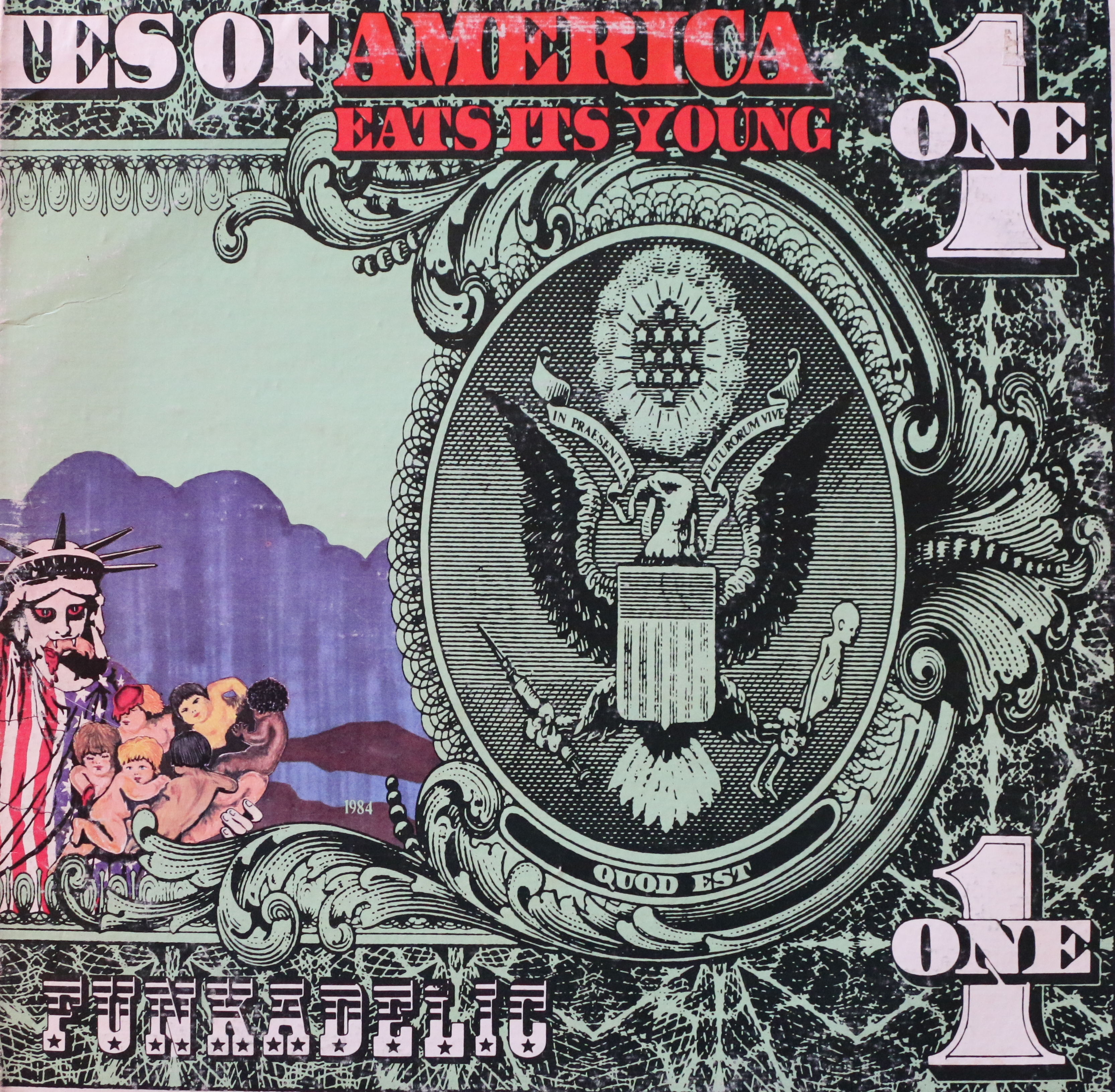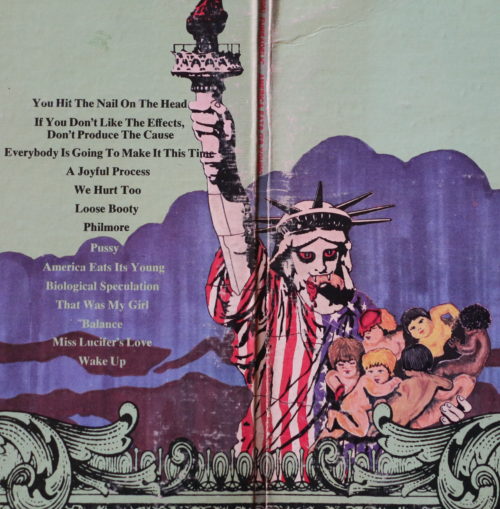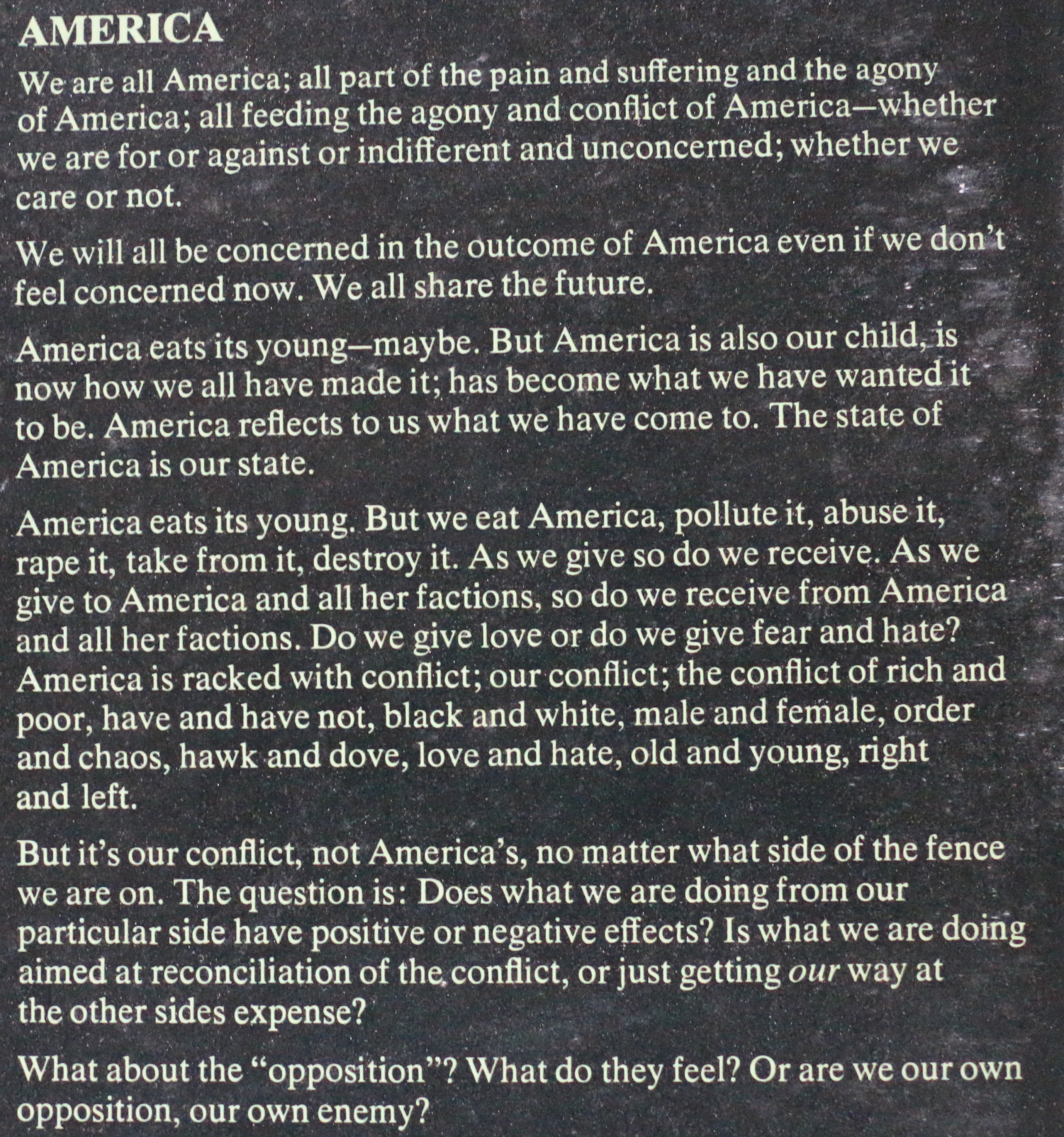
Funkadelic – You Hit The Nail On The Head/If You Don’t Like The Effects/Everybody’s Gonna Make It
Funkadelic – Balance
Funkadelic – Wake Up
Over this past week, there’s been a lot on my mind, as has been the case for most Americans. As a sociologist, I teach issues of race, racism and privilege in the US context, and so I’m well versed with our history and the current issues connected to racial oppression and police violence. But even with all of that background, the events of the past week have been tough to deal with. Like so many, I often find solace in music. But I don’t like for the music I listen to, or other forms of art, to be divorced from the trying times I experience. Instead I tend to go for music that speaks to those times and helps me to reflect on them. While a lot of tracks have made their way to my turntables (or more often the turntable of my mind), few albums have be there as much as this album from Funkadelic.
The music of Funkadelic was already on heavy rotation, because of the recent passing of master keyboardist Bernie Worrell, but the past week has also caused me to reflect on this particular album more than any other. America Eats Its Young was a landmark album for George Clinton’s band of merry funksters. Aside from being the band’s first double album, it also marked the moment Bootsy Collins and the House Guests (all those former JBs) made their way into the Parliment/Funkadelic fold, as well as Gary Shider’s United Soul. “America” was also a real showcase for Worrell, who arranged all the strings on the album and whose keyboards are front and center right from the start on “You Hit The Nail On The Head.” Perhaps most notably, America Eats Its Young was released roughly 6 months after Sly Stone’s epic There’s A Riot Going On, and the influence of Sly is certainly all over this album, which might be part of why this album doesn’t get quite the level of acclaim that it deserves. While “Riot” is a truly legendary release, I think you could make a case, that as a political statement, America Eats Its Young is superior.
While there are a number of straight funky (“Loose Booty” and “Philmore” come to mind) and irreverent (“Pussy” and “Lucifer” for sure) tunes, what really sets this album apart from the Funkadelic albums to preceded it and followed isn’t just its sound, but the clarity of message on the more socially conscious tunes. Listening to the album almost 45 years after its release, these songs remain as timely as ever. For instance, the critique posed in “If You Don’t Like The Effects, Don’t Produce The Cause:”
You say you don’t like what your country’s about,
Ain’t you deep, in your semi-first class seat,
You picket this and protest that, and eat yourself fat,
Ain’t you deep, in your semi-first class seat.
It’s hard not to feel that way about a lot of the things that Americans are normally up in arms about, even as they continue to support a political and economic system that exacerbates many of the “problems.” That is as true in 2016 as it was in 1971, perhaps more so.
One of the current phrases that is popular with a certain subset is “Stay Woke.” The phrase is often attached to a criticism of the current society or a critique of the “real” motivations behind certain actions. But, the thing that I find most interesting about the phrase is that it assumes that the individual has already been awakened. It’s not possible to “Stay Woke” if you are not already awake. But I don’t think even many of the people who use the phrase recognize the ways living in this culture shapes so much of our reality and in particular our perception and reception of that reality. “Wake Up” remains as important in 2016 as it was in 1971.
You got to wake up,
You’re in the presence of your future,
Wake up, see what you’re doing in our sleep,
You got to wake up,
You’re in the presence of your future,
Wake up, from the mistakes of the past.
I find it especially striking that the people raised on this music in the 1970s, are the people who raised the BlackLivesMatter generation. While you can make the argument that our current society has never been more distracted and unfocused when it comes to necessary social change, you could also make the argument that this moment creates the possibilities of greater social awareness and consciousness than any other. That is one of the more hopeful aspects of these moments of crisis. People who were content to not only live their lives, but admonish others for not living as they did, have come to realize that the world they live in is not the same as it for other people. That their experiences are not universal, that the privileges they enjoy are not shared by all of humanity and they’re asking the right questions. But I’m sure that same sense of hope was felt in the 1960s, but the US went in a very different direction with Nixon in 1968, setting the stage for the Reagan “revolution” of the 1980s. While I’d like to remain hopeful about the chances of America waking up, I worry that America will eat its young once again come November.
That “Balance” between being critical and hopeful of the state of things is best realized in the track “Everybody’s Gonna Make It This Time.” The song takes past generations to task for not fixing the problems we have to deal with, but it also doesn’t let the current generation off the hook.
We got to learn from the mistakes that were made in the past,
We got to clean so that we can clean our minds,
Cause in order to get it together,
We got to get our heads together,
Everybody is going to make it this time.
Our country and our cities, they have been betrayed for money,
Ooooh, and somehow, the people, they will make a change, yeah,
There’s not a doubt in my mind,
If hunger and anger place the blame,
There won’t be a country left to change.
We got to see what we’re doing in the name of comfort,
We’ve got to see, we’ve got to feel the warning signs,
But in order to get it together,
We’ve got to get our heads together,
Everybody is going to make it this time.
As described in “Wake Up,” we are always in the presence of our future, but the kind of future we create depends on the choices we make or, just as importantly, the choices we do not. Learning from the mistakes of the past, moving forward and creating something better is not easy work. If it were, we’d already be living in a blissful utopia. But that hard work is necessary to effect change. And while in moments like this it can be hard to see any hopeful signs, it’s these moments that push us towards the greatest changes, as individuals and as a nation. As the saying goes, it’s always darkest just before the dawn. But it is just as important to kind in mind that what kind of day we will have depends on what we see and what we do with our time in the Sun.


